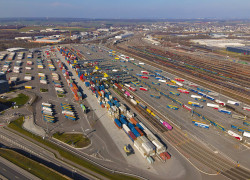Payments disrupted: Deloitte Luxembourg releases report on the emerging challenge for European retail banks.
Since the financial crisis, European banks have not made returns in excess of their cost of equity, and they are not expected to do so for several years to come. Banks’s profitability is especially suffering within the area of payments, and is likely to experience intensified competition based on the upcoming implementation of EU regulations and directives.
Wanting to identify the rising challenges for European retail banks based on the introduction of the Interchange Fee Regulation (IFR) in December 2015 and the future implementation of the revised Payments Services Directive in 2017, Deloitte spoke to payments experts from retail banks, card and non-card payment schemes, payments processors and non-bank payment service providers.
The objective was to understand experts’ view on the developments within the sector, and how they felt the industry should respond to them. Respondents were asked to evaluate the effectiveness of new, non-bank payment service providers on their payments revenues, the future ownership and governance of non-card payment schemes, and possible consolidation among payments processors.
It is estimated that retail payments will account for around €128 billion in revenues in 2015, a quarter of total European retail banking revenue, making payments a key revenue stream with strategic importance. The estimated impact from the adoption of IFR will be modest in terms of the direct loss of revenue attributed to capping of debit and credit card fees in the EU. However, the 2017 Directive opens up the payment market, and these regulatory changes will enable agile and non-bank players to enter the segment of payment services, without having to own nor maintain the heavy infrastructure of traditional retail banks, which is a challenge for European retail banks.
If these non-bank players succeed and gain a foothold within payments their involvement is expected to increase over time, stipulates Martin Flaunet Partner and Banking Leader, and they may eventually move into other banking services, similar to PayPal that already now offers PayPal Credit in Europe
Although, some industry experts think that new retail payments services will not affect banks’ profitability much, as the initial effect will be to displace traditional cash payments, we think that this status quo will not remain, explains Martin Flaunet. The report suggests that 3 scenarios will emerge: a “new oligopoly”—where newcomers will be restricted to a handful of big players backed by brand-name and scale. A “utility model”—where the customer is willing to experiment forcing the payment service industry to use applications that are run on “banks rails”, entailing low-margin, and high volume utilities. Or, a “parallel payments infrastructure”, opening up the payments systems to new methods based on crypto-currencies using block-chain technologies.
Consequently, a dominant strategy both for small as well as big banks would be to collaborate with card payment networks which are already large and global, states Patrick Laurent, Partner and Technology and Enterprise Application Leader. Albeit, that larger banks do have the means to pursue innovative in-house solutions rendering them able to face the increasing competition, it is a delicate balance to ensure that they do not over-invest and “go it alone” in an innovation race, that they are unlikely to win given their culture, regulatory environment and systems.
The full report can be found here:
www2.deloitte.com/lu/en/pages/financial-services/articles/payments-disrupted.html
Communiqués liés
RSA launches technology and management liability insurance s...
RSA Luxembourg, part of Intact Insurance Specialty Solutions, today announces th...
Lancement d'une nouvelle connexion intermodale entre Bettemb...
CFL multimodal a le plaisir d'annoncer le lancement de sa nouvelle connexion i...
Experts from LUNEX award first micro-credentials in Rwanda o...
The Rwanda Ministry of Education (MINEDUC) formally inaugurated Syllabi, a publi...
ERG Notes that ENRC Secures Landmark Victory as Court of App...
Eurasian Resources Group (ERG), a leading diversified natural resources group he...
LetzToken et La Vie est Belle annoncent leur partenariat ouv...
«?LetzToken?», plateforme de tokenisation pionnière basée à Luxembourg, et ...
ERG announces a Pre-Export Finance Facility Agreement based ...
Eurasian Resources Group (“ERG”, “The Group”), a leading diversified nat...
Il n'y a aucun résultat pour votre recherche







